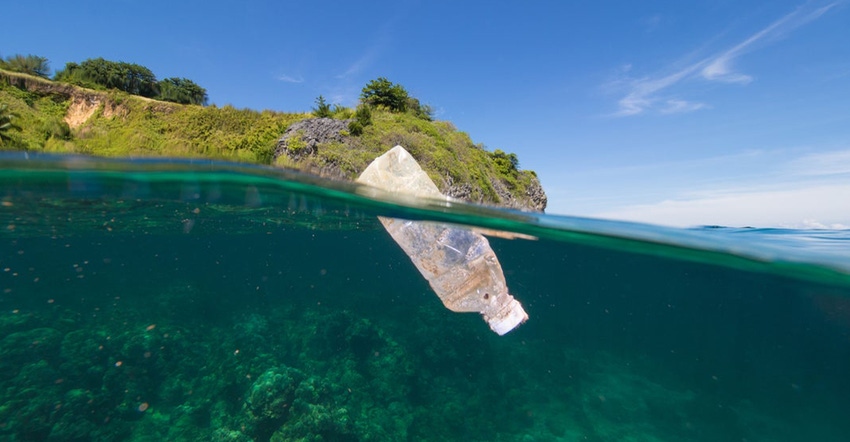Modernizing Recycling is an Important Path to Plastic Reduction, but Not the Only One.
Plastic in the environment is a serious problem. Some say that given the results of our recycling system today, we should abandon recycling altogether and focus instead on other solutions. That is a false choice.

Plastic in the environment is a serious problem. Some say that given the results of our recycling system today, we should abandon recycling altogether and focus instead on other solutions. That is a false choice. The non-alcoholic beverage industry has a role in solving this problem, and we have many tools in our collective toolbox to do so. The recycling system can and must work better. And a modernized recycling system is one of many solutions needed to reduce plastic in the environment and our use of new plastic.
That’s why America’s leading beverage companies – The Coca-Cola Company, Keurig Dr Pepper and PepsiCo – joined together three years ago to launch a nationwide initiative called Every Bottle Back. Every Bottle Back is a commitment to get more of our valuable, 100% recyclable bottles back so they can be remade into new ones, reducing our plastic footprint.
This is more than a commitment; we are taking action at every stage of the life cycle of our plastic bottles to help them make their way back and be remade, as intended. This means making our bottles recyclable, helping consumers recycle better, and improving collection systems to remake more materials.
It starts with innovation in package design. We are carefully designing our bottles to be 100% recyclable, including the caps, and lightweighting bottles to use less plastic. The plastic we use in our bottles is the most recycled and recyclable plastic available, and if collected our bottles can be remade into new products again and again.
Intentionally designing fully recyclable packaging alone is not enough. Once these valuable bottles leave store shelves, we need consumers’ help to get them back. That’s why we added recycling reminders on our bottles and invested in public awareness campaigns to inspire consumer confidence that when action is taken to return bottles, bottles will be remade. Because recycling is a patchwork of systems across more than 20,000 local jurisdictions in this country, we are also partnering with environmental groups in communities to provide educational materials tailored to the particular design of individual communities.
Education and inspiration alone are not enough. Once the bottles make it into a recycling bin, we need better, more reliable recycling infrastructure so those bottles get recycled instead of ending up in a landfill or in nature. That is why Every Bottle Back, working with Closed Loop Partners and The Recycling Partnership, is leveraging a $400 million fund to improve recycling infrastructure. At the federal level, the beverage industry spearheads a coalition of companies that advocated for federal investment in recycling system improvements. That funding was included in the Infrastructure Improvement and Jobs Act, which was signed into law about a year ago. We hope that the Biden administration will soon release these funds to communities that can use them to increase recycling rates.
Improving existing recycling infrastructure alone is not enough. We need to rethink how our collection systems are designed to create effective, financially sustainable and convenient systems that support circularity for all packaging, including plastic. That is why American Beverage and World Wildlife Fund established a set of joint principles for collection systems in which producers operate and fund the system with government oversight. Earlier this year, Colorado became the first state in the U.S. to pass a true Extended Producer Responsibility (EPR) law, built on these principles, with support of our industry and environmental organizations. This innovative system shifts responsibility from taxpayers and local governments to the producers of all packaging and printed paper. As a result, more Coloradans will have access to better, more efficient recycling. And the private sector will compete for more recycled materials to remake into new products.
Taken together, real progress is being made. To date we have committed funding to 27 projects in communities across the country that will yield an additional 719 million pounds of recycled PET over the next ten years. Our companies are using more recycled PET than ever before – including bottles made of fully recycled PET. And we are taking our principles for good collection system design to lawmakers who are looking to improve systems in their states. At the same time, our companies continue pursuing innovative approaches to plastic reduction like reusable and refillable packaging, which hold great promise.
On America Recycles Day, we are proud of the leadership and progress our industry has made in the last three years. But the job is not done. The path to getting Every Bottle Back requires an “all of the above” approach – and that includes a collection system that works better and is more accessible to more Americans. We are committed to reducing plastic in the environment, and stand ready to partner with governments, environmental organizations and our friends in the private sector to leverage our collective strengths to get there faster.
Editor's Note: Waste360 welcomes contributed articles. Email your commentary or article to [email protected] with a headshot, bio and the articlE. We will review all submissions. Editorial guidelines are located here.
About the Author(s)
You May Also Like


